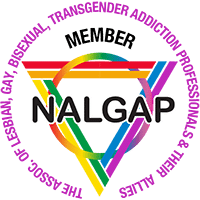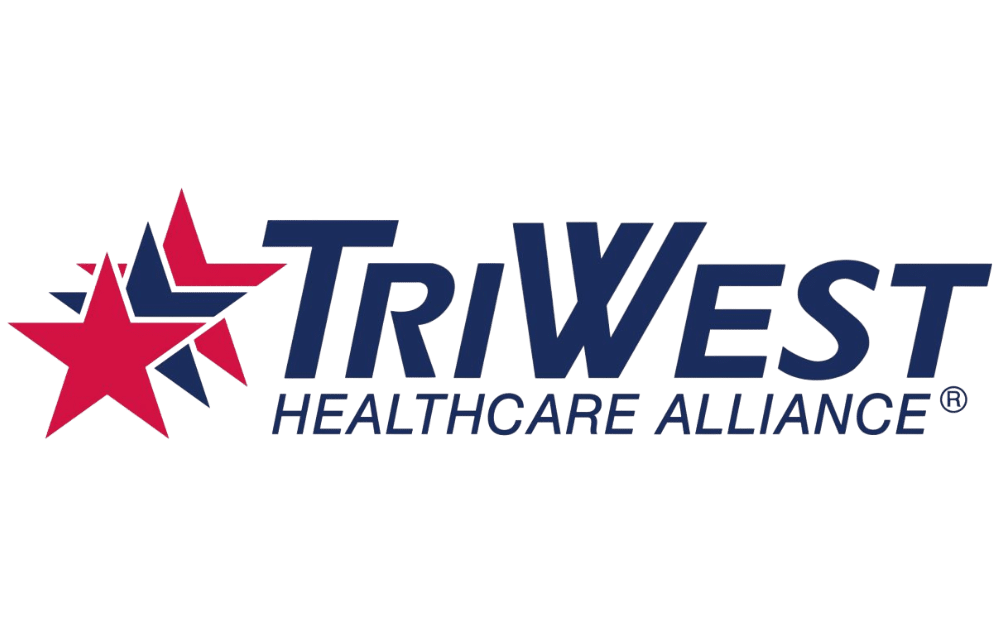Drug rehabilitation centers in Colorado
Understanding Drug Addiction Challenges in Colorado
As a key player in the fight against drug addiction, it’s crucial to acknowledge the unique challenges faced by individuals in Colorado. The state has seen a rise in substance use disorders, influenced by factors such as economic changes and widespread drug availability. Addiction is a multifaceted issue that extends beyond the individual, impacting families and communities. At Mile High Recovery Center, we see firsthand how these dynamics play out, often with devastating consequences.
Yet, within these challenges lies an opportunity for recovery and healing. Colorado’s communities are resilient, with a strong network of professionals dedicated to addressing substance abuse issues. Our organization is a vital part of this network, providing empathetic and comprehensive care to those who need it. We understand that overcoming addiction requires more than just treating the symptoms; it demands an integrated approach addressing both physical and mental health concerns.
Exploring Drug Rehabilitation Centers in Colorado
Within the state, there are numerous drug rehabilitation centers, each with its approach and specialties. Facilities like Mile High Recovery Center offer a unique blend of traditional and innovative therapies tailored to individual needs. Colorado’s diverse landscape allows for a varied therapeutic environment, incorporating both urban and outdoor settings.
Rehabilitation centers here focus on comprehensive care, ensuring that every aspect of recovery is addressed. This includes residential treatment, outpatient programs, and supportive housing options. We believe that a successful recovery journey is deeply personalized, reflecting the unique circumstances and needs of each individual.
Finding the right fit is essential. Whether it’s a focus on long-term residential treatment or more flexible outpatient care, choosing a program that aligns with personal recovery goals can significantly impact success rates. Drug rehabilitation centers in Colorado are committed to providing options that cater to a wide array of needs, ensuring no one is left without support.
Treatment Methods and Approaches at Mile High Recovery Center
At Mile High Recovery Center, we pride ourselves on offering a comprehensive range of services designed to meet the diverse needs of our clients. Our continuum of care includes residential treatment, partial hospitalization, and various outpatient programs. This allows us to support clients at every stage of their recovery journey.
Our treatment philosophy is rooted in evidence-based practices, integrating clinical therapies like Cognitive Behavioral Therapy and Dialectical Behavior Therapy. These approaches are complemented by experiential modalities, including adventure therapy and equine-assisted therapy, providing a balanced and holistic recovery experience.
The integration of these methods creates a dynamic and adaptable program, capable of addressing the complex nature of substance use disorders. Our focus on personalized treatment plans ensures that each client receives the care most suited to their specific situation, maximizing the potential for sustained recovery.
Combining Medical and Holistic Approaches
Our approach to treatment at Mile High Recovery Center is characterized by the seamless integration of medical and holistic therapies. We recognize that medication-assisted treatment is critical for certain individuals, providing essential support during withdrawal and recovery phases. Medications like Suboxone and Vivitrol play a crucial role in stabilizing patients and reducing cravings.
However, we believe that medication alone is not enough. Holistic therapies that focus on the mind, body, and spirit are equally important. By incorporating activities such as art and music therapy, we foster a nurturing environment that encourages self-expression and healing. Nutritional education further supports physical health, promoting overall wellness as clients transition through their recovery journey.
Dual Diagnosis and Co-Occurring Disorders
Many individuals suffering from substance use disorders also face co-occurring mental health challenges. Dual diagnosis is a critical component of our treatment model, addressing both addiction and mental health conditions such as anxiety, PTSD, and bipolar disorder. This integrated approach ensures that all aspects of a client’s health are considered, fostering a more sustainable recovery.
Our clinical staff is experienced in managing these complex cases, providing personalized care that addresses the unique interplay between substance use and mental health. This expertise is essential in developing effective treatment plans that promote long-term stability and wellness.
Alumni Support and Community Involvement
Recovery doesn’t end when treatment concludes. At Mile High Recovery Center, we emphasize the importance of aftercare and community support. Our active alumni community is a testament to the lasting impact of our programs, offering peer support and continued engagement in recovery activities.
We also believe that reintegration into the community is a vital aspect of recovery. Our urban location in Denver provides access to a wide range of community resources and activities that support this transition. Whether through volunteering opportunities or social events, we encourage our alumni to remain connected, nurturing a network of support that extends beyond our facility.
This community involvement is pivotal in reinforcing the skills and strategies learned during treatment, empowering individuals to maintain their recovery journey with confidence and resilience.
Insurance and Access to Care
Navigating the complexities of insurance and treatment costs can be daunting. At Mile High Recovery Center, we strive to simplify this process by providing comprehensive support in verifying insurance coverage and facilitating in-network reimbursements. Our partnerships with major carriers such as Aetna, Cigna, and Blue Cross Blue Shield ensure that clients have access to the care they need without unnecessary financial strain.
We understand that financial barriers can hinder individuals from seeking treatment, which is why we prioritize affordability and accessibility in our programs. Our goal is to ensure that everyone seeking help can access the resources they need, regardless of their financial situation.
By streamlining these processes, we remove obstacles that may prevent individuals from starting their recovery journey, allowing them to focus on healing and personal growth.
Lived Experience and Inclusive Care
A distinctive feature of Mile High Recovery Center is our commitment to inclusive and empathetic care. Our team includes individuals with lived recovery experience, providing an authentic and relatable perspective that resonates with clients. This lived experience informs our practices, enhancing our ability to connect with and support clients on their journey.
We are also dedicated to providing specialized care for diverse populations, including the LGBTQ community and military beneficiaries. By creating an environment that respects and values individuality, we ensure that every client feels welcomed and supported in their recovery. This inclusive approach fosters a sense of belonging, which is crucial for successful treatment outcomes.
Therapeutic Activities and Urban Access
Our strategic location in Denver City Center allows us to offer a variety of therapeutic activities that enrich the recovery process. Access to urban and outdoor environments provides a dynamic backdrop for our programs, promoting a sense of adventure and exploration during treatment.
Clients have the opportunity to engage in activities that stimulate both body and mind, from hiking in the nearby mountains to participating in city-based cultural and educational events. This diverse range of experiences supports holistic healing, encouraging clients to discover new passions and interests that contribute to a fulfilling, substance-free lifestyle.
The ability to connect with the surrounding community further reinforces our emphasis on long-term recovery and reintegration, providing clients with the tools and confidence they need to thrive post-treatment.
What are some unique challenges of drug addiction in Colorado that affect recovery efforts?
In Colorado, the fight against drug addiction is compounded by several unique challenges. Economic shifts and the availability of various substances are significant factors influencing the rise in substance use disorders. From our experience at Mile High Recovery Center, it’s clear that addiction often stretches beyond the individual, impacting entire families and communities. One notable challenge we face is dealing with the opioid crisis, which has taken a particularly harsh toll in certain regions of the state. In addressing these issues, a community-wide approach that includes comprehensive and empathetic care is vital. This involves not just treating the symptoms but also addressing underlying mental health concerns, providing a more holistic path to recovery. How do you think community dynamics contribute to these challenges and solutions?
How effective are personalized treatment plans at drug rehabilitation centers in Colorado?
Personalized treatment plans are at the heart of successful recovery journeys, especially in Colorado where diverse populations and unique landscapes can influence addiction and recovery. At Mile High Recovery Center, we find that tailoring treatment to the individual’s needs significantly improves outcomes. This includes considering their specific substance use, mental health challenges, and personal circumstances. For example, someone struggling with both addiction and anxiety may benefit from a combination of Cognitive Behavioral Therapy and art therapy, allowing them to express and process emotions in a non-verbal way. Personalized plans ensure that each client feels seen and supported, maximizing their potential for sustained recovery. Have you or someone you know benefited from a personalized treatment approach?
What advantages does integrating medical and holistic therapies offer in addiction treatment?
Integrating medical and holistic therapies provides a balanced treatment approach that addresses both the physical and emotional components of addiction. At Mile High Recovery Center, we use medication-assisted treatments like Suboxone and Vivitrol to help stabilize patients, minimizing withdrawal symptoms and reducing cravings. However, we complement this with holistic therapies such as equine-assisted therapy and nutritional education. These activities foster healing of the mind and spirit, creating a nurturing environment for recovery. An individual might find that engaging in music therapy allows them to express emotions that are difficult to articulate, while nutritional guidance supports physical health improvements. This comprehensive approach can be transformative, offering clients a well-rounded foundation for long-term sobriety. What holistic therapy do you think would be most beneficial in addiction recovery?
Why is dual diagnosis treatment crucial for individuals with co-occurring disorders?
Treating individuals with both a substance use disorder and a mental health condition, known as a dual diagnosis, is crucial for achieving lasting recovery. At Mile High Recovery Center, we often see that untreated mental health issues like PTSD or depression can exacerbate addiction. By addressing both conditions simultaneously, we can provide a more comprehensive and effective treatment plan. For instance, a client with anxiety might struggle with alcohol dependency as a means to self-medicate. By incorporating therapy that targets both the addiction and anxiety, we help them develop healthier coping mechanisms. This integrated approach not only aids in recovery but also enhances overall mental health and well-being. What are your thoughts on the relationship between mental health and addiction?
How does alumni support and community involvement contribute to successful recovery outcomes?
Alumni support and community involvement play pivotal roles in sustaining long-term recovery. At Mile High Recovery Center, our active alumni community provides ongoing peer support and engagement, which is essential once formal treatment concludes. These connections offer encouragement and a sense of belonging, reducing the isolation that often accompanies recovery. Engaging with community resources, such as volunteering or participating in social events, also helps individuals integrate back into society and build a support network. For example, one of our alumni found personal growth through volunteering, which not only strengthened their sobriety but also enriched their life with a sense of purpose. Would you consider participating in community activities as part of your recovery journey?
How can individuals navigate insurance and access care for addiction treatment in Colorado?
Navigating insurance and accessing addiction care can indeed be daunting, but strategic support can simplify the process. At Mile High Recovery Center, we offer comprehensive assistance for verifying insurance coverage and facilitating in-network reimbursements. We work with major carriers like Aetna, Cigna, and Blue Cross Blue Shield to remove financial barriers to treatment. By having a dedicated team to handle these aspects, individuals can focus entirely on their recovery journey. Additionally, financial aids or sliding scale options might be available for those without sufficient insurance coverage. Addressing this financial challenge upfront can significantly ease the path to starting treatment. How important do you think financial accessibility is in the decision to seek treatment?
What role does inclusive care and lived experience play in addiction treatment?
Inclusive care and lived experience are central to creating an empathetic and supportive treatment environment. At Mile High Recovery Center, our team includes individuals who have personal recovery experiences, providing a relatable and authentic perspective that deeply resonates with clients. This lived experience enhances trust and understanding, vital components of an effective therapeutic relationship. Furthermore, we are committed to supporting diverse populations, including the LGBTQ community and military beneficiaries. Creating an environment that respects individuality fosters a sense of safety and belonging, which is crucial for successful recovery outcomes. How might a sense of shared experience impact someone’s willingness to seek help?
Resources
- Colorado State Government – Official website of the Colorado state government providing information on drug addiction challenges in the state.
- Substance Abuse and Mental Health Services Administration (SAMHSA) – SAMHSA is a branch of the U.S. Department of Health & Human Services focused on improving behavioral health across the nation.
- National Institute on Drug Abuse (NIDA) – NIDA is a federal government research institute focused on the science of drug addiction and substance use disorders.
- National Alliance on Mental Illness (NAMI) – NAMI is a grassroots mental health organization providing support and resources for individuals and families affected by mental illness.
- Healthcare.gov – The official health insurance marketplace website under the U.S. government, providing information on insurance coverage and access to care.
















